Persona 4 Golden PC runs perfectly, and even after Persona 5 Royal it feels great to play
Persona 4 Golden is still great
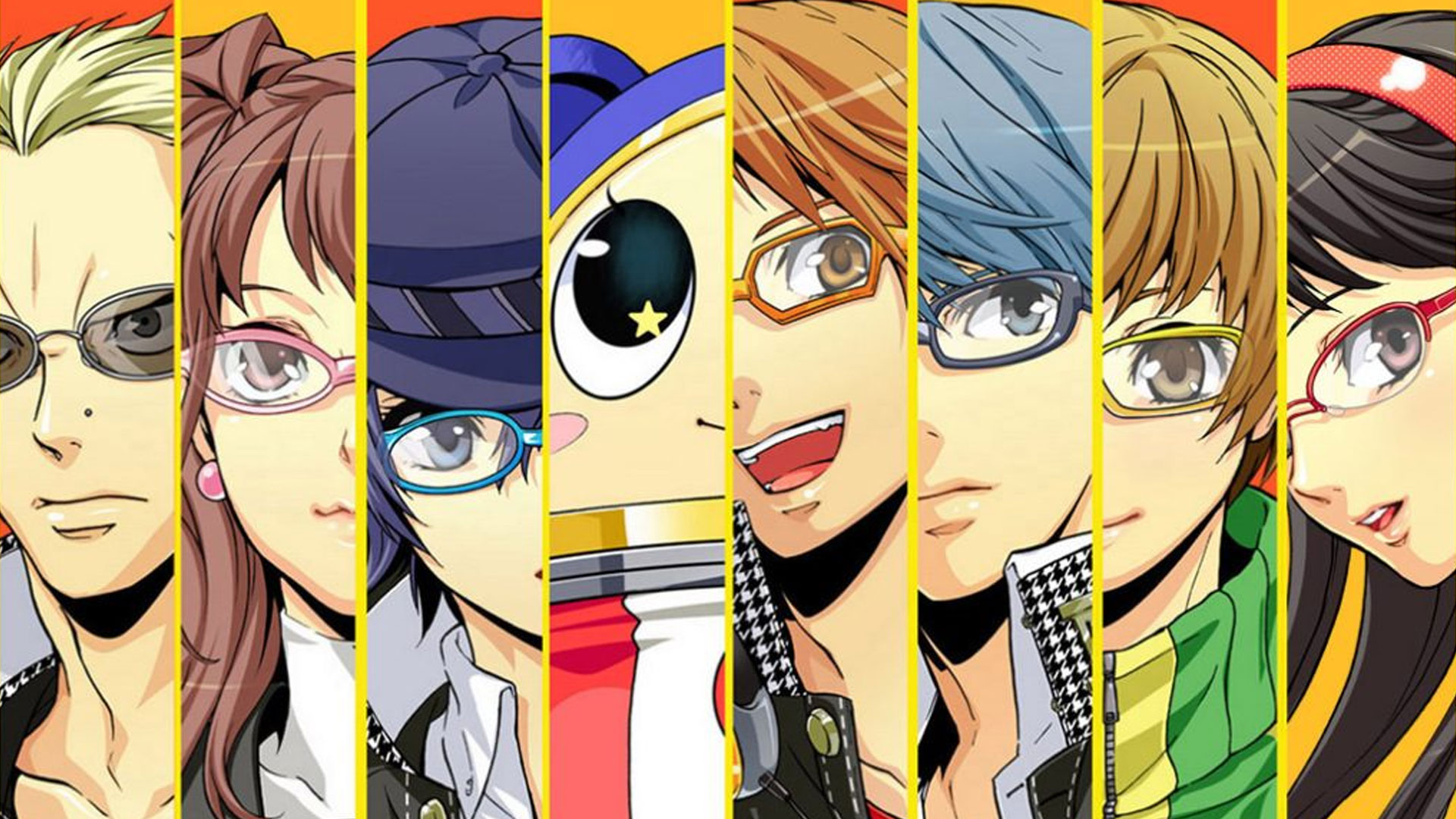
Persona 4 Golden has come to PC, and I still can't believe it. I never imagined Atlus would actually bring one of its most important and PlayStation-faithful franchises to another platform, let alone the PC, which the developer has barely touched. Fortunately, I don't have to imagine it anymore. I've played the PC port, and it's great. I've been spoiled by the many innovations and quality of life features in Persona 5 and Persona 5 Royal, but Persona 4 Golden not only holds up well, it offers a distinct experience that still sets it apart from the rest of the Persona series.
Persona 4 Golden PC is a straight port of the original game. It isn't missing anything, and it doesn't have anything extra - which is fine, really. I reckon PC players will be happy to have access to this storied JRPG at all (without relying on an emulator, that is). And it doesn't need anything else. Persona 4 was great when it launched on PS2 in 2008, and 2012's Golden re-release is a strictly better version with oodles of new content that can easily push your playtime over the 100-hour mark. In other words, pretty much everything that was said about Persona 4 Golden eight years ago still rings true. With that in mind, I mainly want to focus on the quality of the PC port and how the game itself compares to modern JRPG standards.
Port report
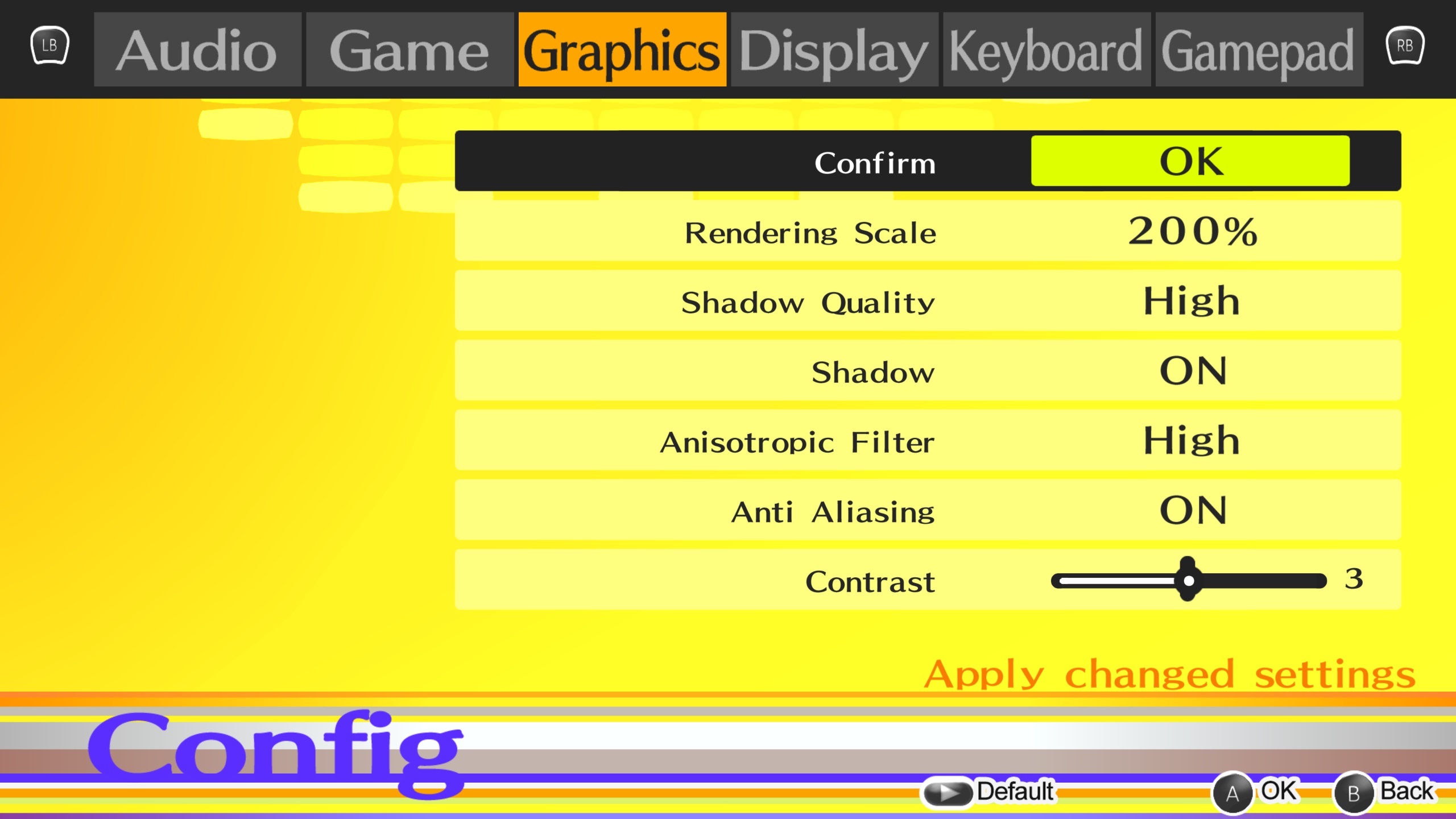
I've only had time to play the first portion of the PC version, but I've had zero performance issues whatsoever. The frame rate is unlocked and mine stays well over 60 (on an i7-9700k and RTX 2080 Super). Everything loads quickly, and menus are snappy and responsive. I've been playing at 1440p, and I haven't noticed much stretching outside of the animated cutscenes, which are somewhat disappointingly low-res. Playing at a lower resolution in windowed mode mostly fixes this, but the quality isn't so bad that I want to give up my big screen.
Windowed mode is kind of the only workaround too, because graphics settings are limited to render scale, shadows, anisotropic filtering, and anti-aliasing, with a couple settings apiece. There are definitely some dated textures too, and the character models are blocky, but that's to be expected from what started as a PS2 game. Character portraits look great, and I care about that more than anything. Basically, it looks how you'd expect and it runs smoothly.
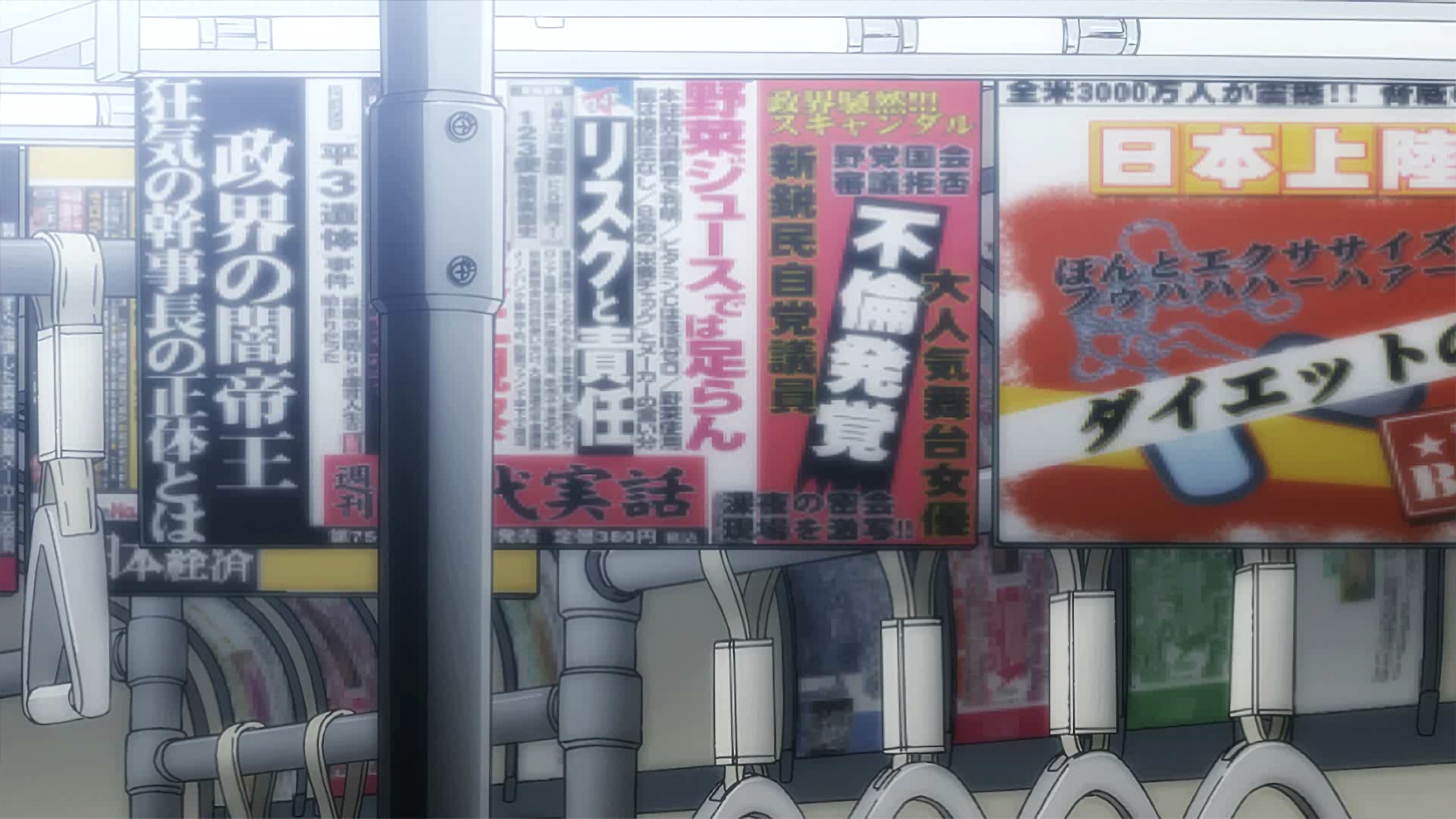
Surprisingly, Persona 4 Golden PC does have full mouse and keyboard support. But while this control scheme is perfectly serviceable for putting around town, it falls apart when you're exploring dungeons. By default, you use Q and E to rotate the camera, and this gets real awkward, real quick. It is cool that you can technically play the game with one hand using the default keybinds, and the mouse is integrated fairly well, but playing with a gamepad feels better in every way. I quickly hooked up my PS4 controller and it worked fine. I couldn't get the game to show PS4 button prompts, sadly, but I suspect that'll be fixed with a mod soon.
So, the port is rock-solid, and the game plays exactly like it did eight years ago. And I think that's a good thing for the most part. Persona 5 and Royal added a lot of cool and comfortable things to the Persona formula, but there's also a lot of stuff in Persona 4 Golden that's never been replicated. And now that I'm experiencing it again, I'm kind of sad that these things were left behind.
Some rough edges
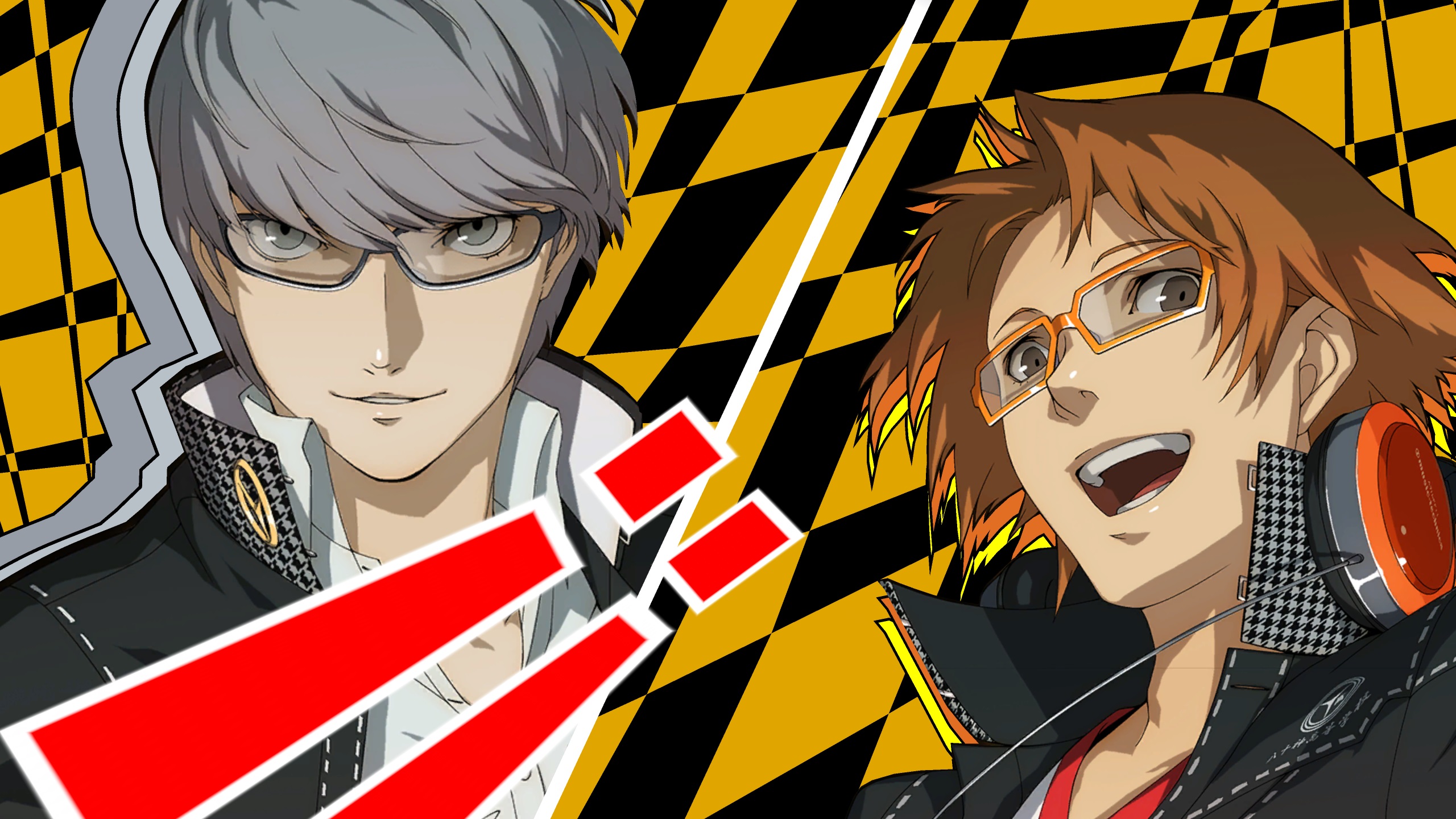
Let's get this out of the way first: there are some things you'll definitely miss if you're coming into this game after playing Persona 5 Royal. Social Link benefits are a big one, because outside of your teammates, the Social Links in Persona 4 Golden are mostly there for character development and fusion EXP. There aren't nearly as many other bonuses - no paying Kawakami to do your laundry or whatever. It's also more difficult to max all your Social Links in one go since there are fewer ways to bypass the dreaded "just here for brownie points" hangout sessions that don't advance your Link.
Sign up to the GamesRadar+ Newsletter
Weekly digests, tales from the communities you love, and more
Additionally, there's no Mementos-equivalent grind-a-thon, no Baton Pass in combat, and there are fewer element types (no Gun, Psy or Rad, and only insta-kill Light and Dark attacks). Oh, and initiating fights can be finicky because you actually have to run up and smack Shadows instead of pouncing on them from stealth from approximately half a mile away. The lack of a cover system makes exploration a little more monotonous too.
Those are the big ones that stuck out to me, but it's nothing I can't live without. And again, Persona 4 Golden has a lot of cool systems of its own. At the end of fights, for instance, you can enter Shuffle Time and pick from a pool of rewards, like bonus EXP or a new Persona. Shuffle Time becomes really handy later on, especially as you unlock more Social Links. I also like that you can collect materials and bring them to a craftsman to make custom weapons, rather than relying on shop inventories and combat drops. There's a more direct quest system woven into the game too, and while quests aren't always rewarding, I like that they aren't sequestered off like the Mementos missions.
A darker tone for a darker town
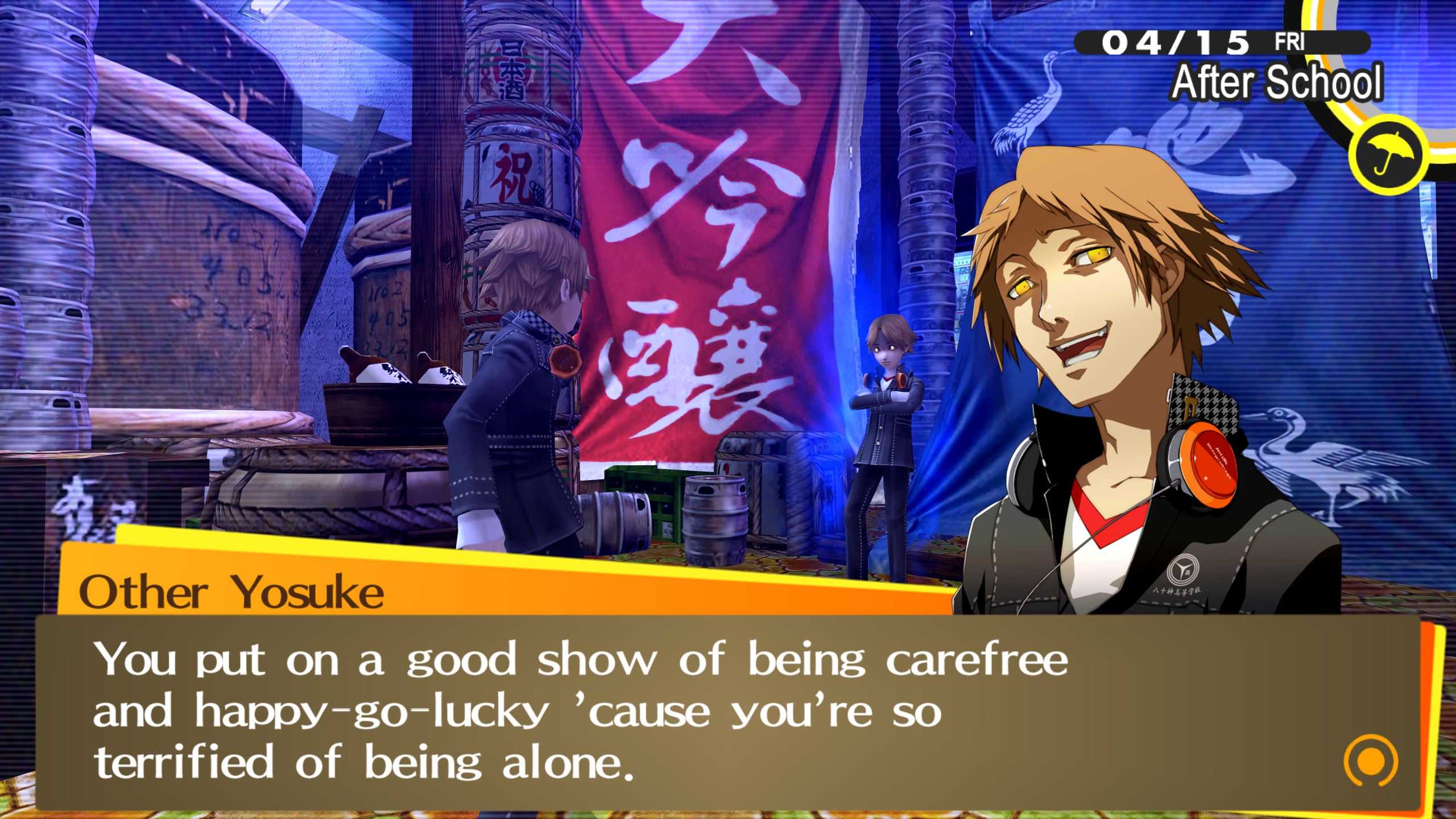
More than anything, I was struck by the difficulty, tone, and music of Persona 4 Golden, and I think these are the things that really set it apart. Persona 5 is very easy, and Persona 5 Royal is pretty easy, even on their hardest difficulties. But Very Hard or even just Hard mode in Persona 4 Golden will beat your whole ass if you slip up, which I love. The added challenge encourages you to min-max Personas and Social Links to become as strong as possible, and it makes bosses much more threatening.
And while the story has some obvious parallels to Persona 5 - move to a new town to live with a no-nonsense family member and inevitably stumble into some supernatural shenanigans - it's presented very differently. Persona 4 Golden straight-up opens with two murders, which really sets the stage and stakes for its more mystery-driven narrative. On top of that, I'd forgotten how well Persona 4 handles the concept of Personas and Shadows.
In Persona 5, characters awaken to Persona by defying unfair circumstances or labels thrust upon them. Persona are sort of a blanket manifestation of rebellion, which works in a story about youth and societal reform. But in Persona 4 Golden, Personas are born from peoples' conquered Shadows, which represent the repressed and ugly parts of their personality. They're a mass of petty, spiteful, and extreme urges devoid of all inhibitions, and characters have no choice but to confront them.
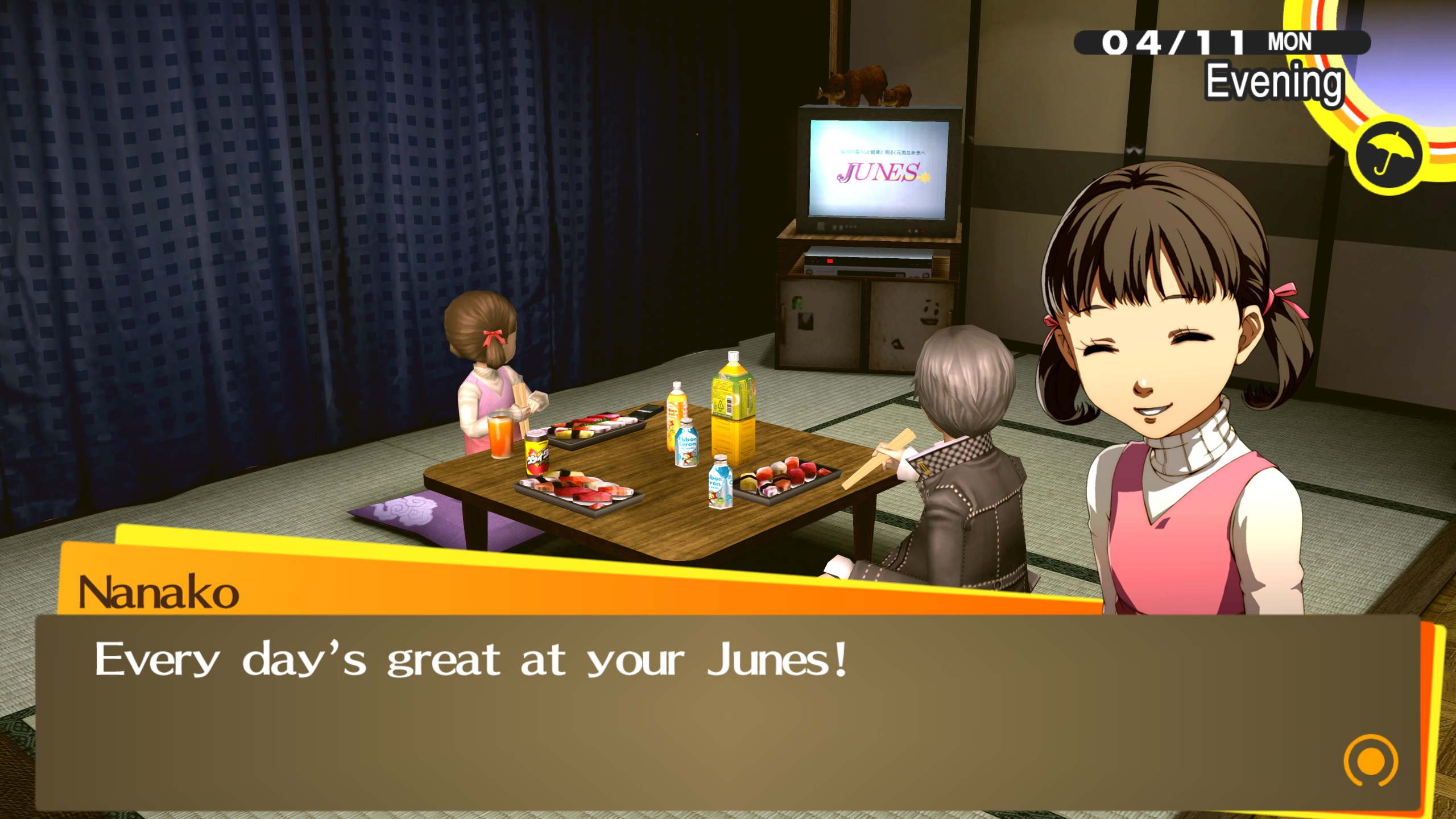
This dynamic - main characters reluctantly accepting their Shadows as part of their psyche - is a driving force in the overall plot, and the inner battles that different characters face add a lot to the coming-of-age stories that all Persona games try to tell. I don't want to spoil the specifics, but Persona 4 Golden deals with heavy, interesting themes - masculinity, sexuality, self-worth, agency. You know, the kinds of things that real teens grapple with when they aren't on a quest to kill a god.
Finally, the music. I mean, what more needs to be said. The Persona 4 Golden soundtrack is banger after banger, and it's incredibly varied. The Persona 5 OST has a great theme to it - a wonderful mix of brass and bass, snares and keys - and it's got some of my favorite individual tracks in the series, but I think Persona 4 Golden wins in both variety and maybe even energy. Its high tracks have more bombastic pop and rock to them, and its lows are rich with rhythm and blues. I'm listening to it right now, and I'm glad more people will get to experience it.
So, is Persona 4 Golden PC a good port? Yeah. Is Persona 4 Golden still good? Oh yeah. Will you enjoy it regardless of whether you've played Persona 5 Royal or no Persona games at all? Yeah, I honestly think you will. It's one of the best games of a previous era, and if anything, the qualities that made it stand out back then are even more striking today.

Austin has been a game journalist for 12 years, having freelanced for the likes of PC Gamer, Eurogamer, IGN, Sports Illustrated, and more while finishing his journalism degree. He's been with GamesRadar+ since 2019. They've yet to realize his position is a cover for his career-spanning Destiny column, and he's kept the ruse going with a lot of news and the occasional feature, all while playing as many roguelikes as possible.


